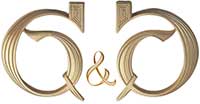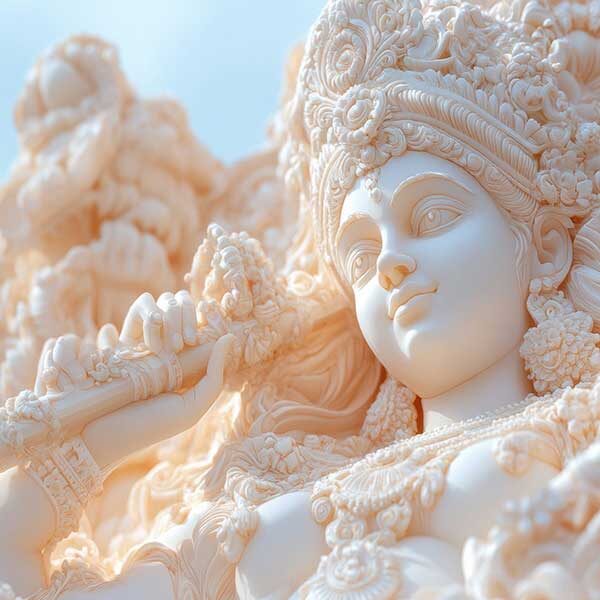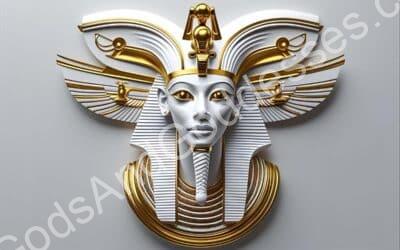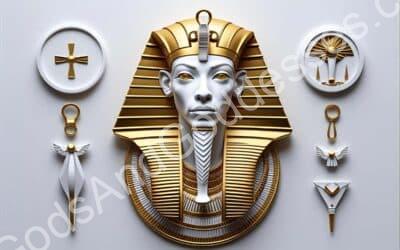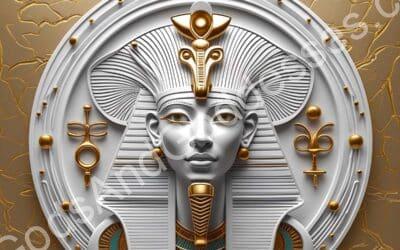Receive Our Newsletter
Resources and reminders to
live your Divine Destiny™
Introduction: Why Egyptian Gods Matter
Egyptian gods were not distant—they were woven into daily life, agriculture, kingship, and the afterlife. The civilization of ancient Egypt thrived for thousands of years along the Nile, leaving behind not only monuments and mummies but also one of the richest pantheons of gods and goddesses in history.
At GodsAndGoddesses.com, we explore the Egyptian gods as part of the larger web of mythology, gods, and goddesses. From Ra, the radiant sun god, to Osiris, lord of the underworld, and Isis, goddess of magic and motherhood, these deities reveal how Egyptians saw nature as sacred and believed in the eternal balance of Ma’at—order, truth, and harmony.
“To the Egyptians, the gods were not myths alone—they were guardians of the cosmic balance.”
Key Takeaways About Egyptian Gods
-
Egyptian gods embodied natural forces and eternal truths—sun, river, sky, fertility, death, and renewal.
-
Their primary role was upholding Ma’at, the principle of cosmic balance and justice.
-
Pharaohs were seen as living embodiments of the gods, ruling as divine intermediaries.
-
Myths of Ra, Osiris, and Isis reveal cycles of creation, death, and resurrection.
-
Egyptian gods remain influential today, inspiring spirituality, art, literature, and popular culture.
Explore Egyptian God Stories
-
Ra: Egyptian Sun God and Creator of Life → The radiant god who ruled the sky and underworld.
-
Osiris: Egyptian God of the Afterlife, Resurrection, and Fertility → Lord of death and rebirth.
-
Isis: Egyptian Goddess of Magic and Motherhood → A healer, protector, and magician whose worship spread across the Mediterranean.
-
Horus: Egyptian Sky God and Protector of Kings → The falcon-headed god of kingship and vision.
The Role of Gods in Ancient Egyptian Religion
Egyptian gods were central to religion and culture. They were:
-
Guardians of Ma’at – Upholding balance, truth, and cosmic order.
-
Intercessors – Mediating between mortals and the divine.
-
Personifications of Nature – Sun, river, earth, and sky in divine form.
-
Protectors of Kingship – Pharaohs were seen as divine, ruling in the gods’ name.
External resource: World History Encyclopedia – Ancient Egyptian Religion.
Major Egyptian Gods and Their Powers
Ra: The Sun God
-
Traveled across the sky by day and through the underworld by night.
-
Embodied creation, renewal, and divine kingship.
Osiris: God of the Afterlife
-
Ruler of the underworld and judge of the dead.
-
Symbol of death, resurrection, and eternal life.
Isis: Goddess of Magic and Motherhood
-
Revered as a healer, protector, and magician.
-
Worship spread beyond Egypt into Greece and Rome.
Horus: God of the Sky and Kingship
-
Depicted as a falcon or falcon-headed man.
-
Protector of pharaohs, associated with the Eye of Horus.
Anubis: God of Mummification
-
Jackal-headed god of embalming.
-
Guided souls through judgment.
Hathor: Goddess of Love and Joy
-
Linked to fertility, dance, music, and beauty.
-
Embodied joy and divine femininity.
Symbolism of Egyptian Gods
Egyptian gods were represented in hybrid forms of humans and animals, symbolizing their cosmic powers:
-
Falcon (Horus) → Sky, kingship, vision.
-
Jackal (Anubis) → Death, funerary rites.
-
Cow (Hathor) → Fertility, nurturing, joy.
-
Sun Disk (Ra) → Creation, life, divine authority.
Egyptian Gods and the Afterlife
For Egyptians, death was not an end but a passage. Gods played crucial roles:
-
Osiris judged the souls in the Hall of Ma’at.
-
Anubis weighed hearts against the feather of truth.
-
Isis and Nephthys acted as mourners and protectors.
External resource: Britannica – Egyptian Mythology.
Egyptian Gods in Modern Culture
-
Archaeology – Gods appear in temples, tombs, and pyramids.
-
Pop Culture – Films, books, and games retell their myths.
-
Spirituality – Neo-pagan and Kemetic practices still honor Egyptian gods today.
Frequently Asked Questions
Who was the most important Egyptian god?
Ra, as sun god and creator, was central, though Osiris and Isis were also widely revered.
Did Egyptians worship only one god?
No, their religion was polytheistic, though certain gods dominated at different times.
Why were gods shown as animals?
Animal forms symbolized divine attributes—like the falcon’s vision or jackal’s guardianship.

Conclusion: The Enduring Legacy of Egyptian Gods
The Egyptian gods formed one of the most influential pantheons in world mythology. Their myths revealed truths about kingship, morality, and eternal life, while their symbols connected people to nature, the cosmos, and the afterlife.
From Ra’s rising sun to Osiris’s resurrection and Isis’s devotion, the Egyptian gods remind us that divine power, balance, and renewal are eternal.
Explore further:
“The gods of Egypt walked with their people—in the sun, the Nile, and the promise of life beyond death.”
Posts About Egyptian Gods
Horus: Egyptian Sky God and Protector of Kings
Horus Egyptian Sky God In the vast and symbolic pantheon of Egyptian Gods, few figures loom as large as Horus, the falcon-headed deity of the sky, kingship, and protection. Revered for vision,...
Osiris: Egyptian God of the Afterlife, Resurrection, and Fertility
Osiris Egyptian God Afterlife In the pantheon of Egyptian Gods, few deities hold as much significance as Osiris, the god of the afterlife, resurrection, and fertility. Worshiped for millennia,...
Ra: Egyptian Sun God and Creator of Life
Ra Egyptian Sun God Among the deities of Egyptian Gods, none shines brighter than Ra, the Sun God. Worshiped for thousands of years as creator of life and ruler of the skies, Ra embodied the sun’s...
- Odin God Story - August 24, 2025
- The Story of Ra: Egyptian Sun God and Creator - August 24, 2025
- Kraken: Mythological Sea Monster of the Deep - August 24, 2025
